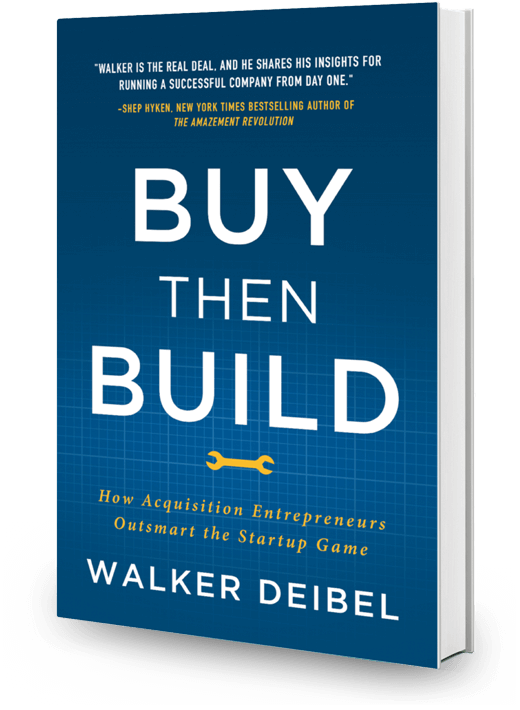Ready to go deeper?
Take the fast track from novice to business owner with our premier business acquisition accelerator
Take the fast track from novice to business owner with our premier business acquisition accelerator
I’m Walker Deibel, founder of Acquisition Lab and author of the bestselling book Buy Then Build: How Acquisition Entrepreneurs Outsmart the Startup Game.
I designed the Acquisition Lab program using same strategy I’ve used to acquire 7 businesses and 100x my income – all in the same amount of time it took my first startup to start, grow, and die.

Copyright © 2022 Acquisition Lab - Pivotal, LLC | All Rights Reserved